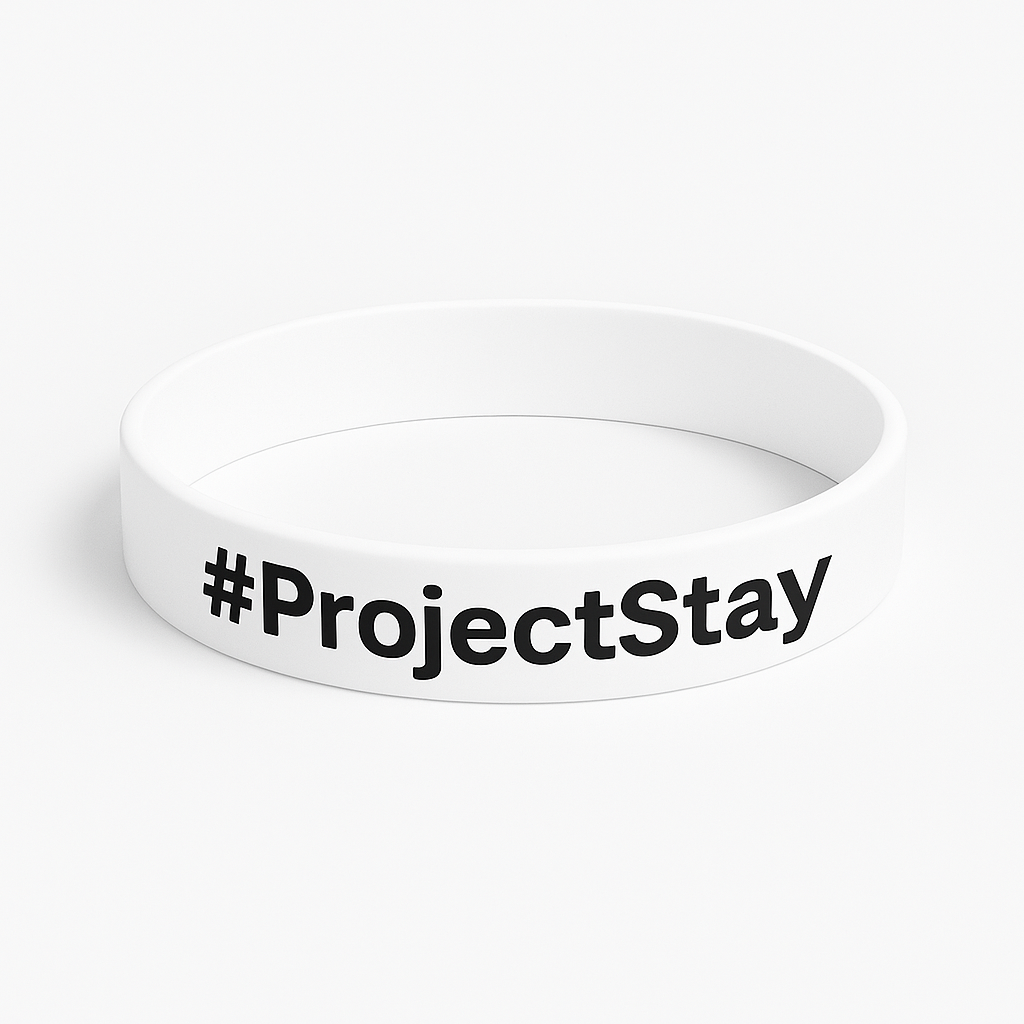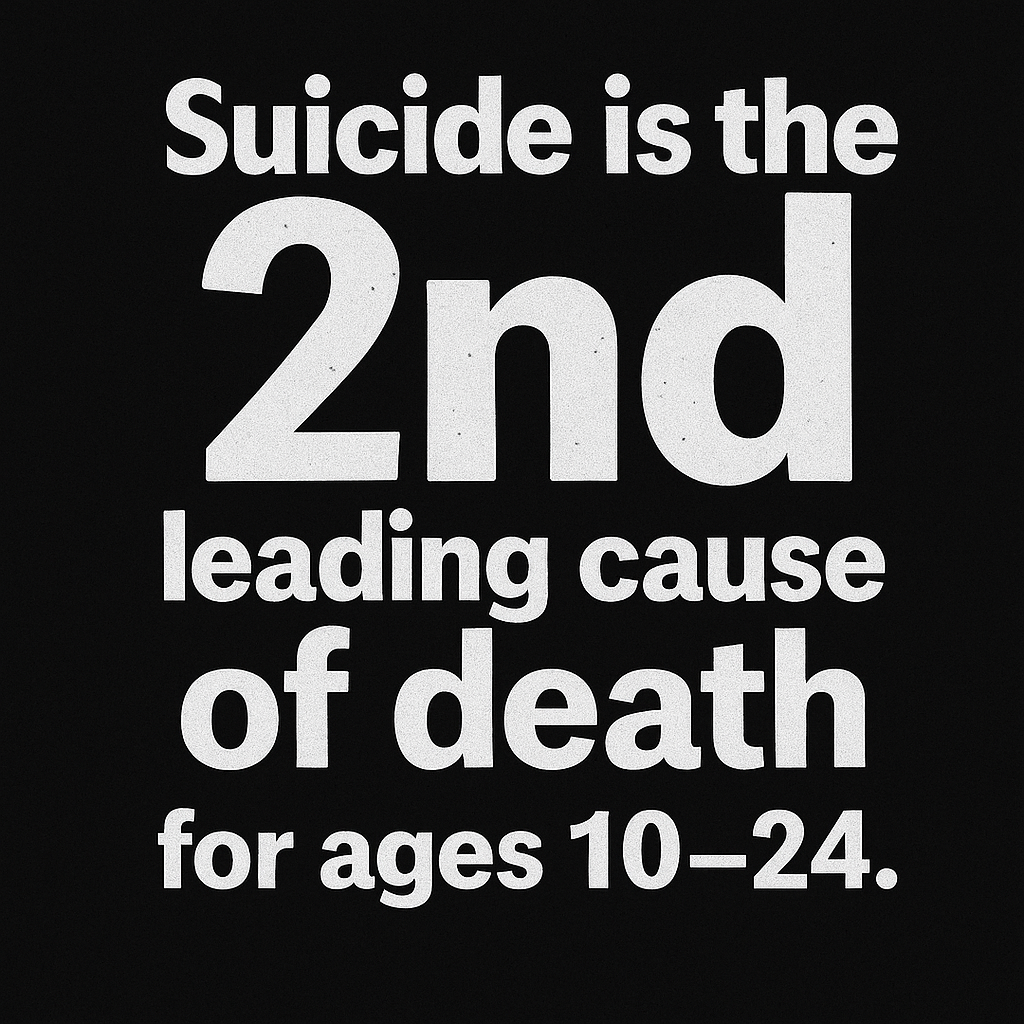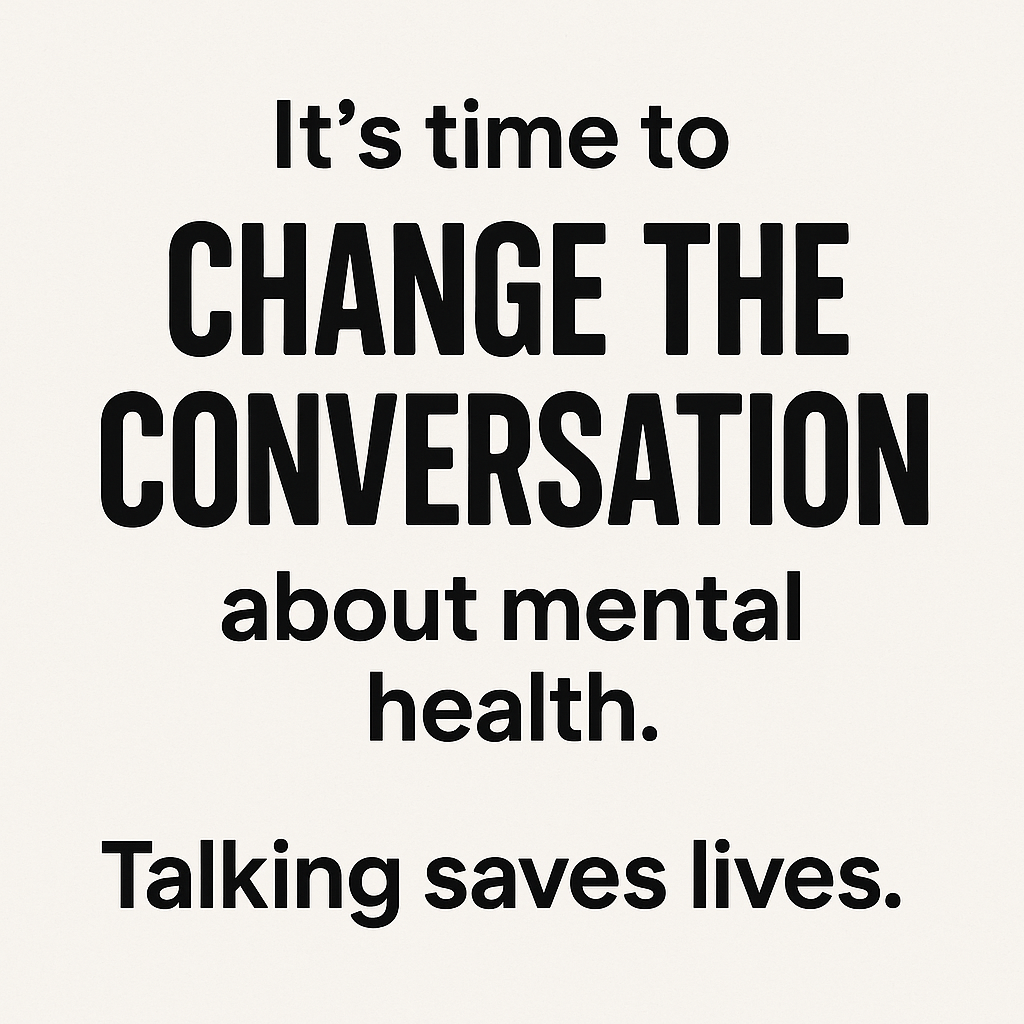Staying Is Brave: The Silent Mental Health Struggle
"Stay. Because some days that’s all we can do."
Mental health is something that touches every life — whether you’re a teenager trying to navigate high school, a parent balancing endless responsibilities, a college student facing pressure, or an adult carrying silent battles no one else sees.
And yet, for so many people, talking about mental health still feels uncomfortable. Stigma, shame, or fear of judgment keep too many silent. Silence that, for some, becomes unbearable.
That’s why movements like Stay exist — to break the silence and remind people: you are not alone, and staying is an act of courage.
A Crisis We Can’t Ignore
The statistics tell us what so many of us already know in our hearts: people are struggling.
1 in 5 teens and young adults reported seriously considering suicide in the past year. (CDC, 2023)
Suicide remains the second leading cause of death for ages 10–24.
Nearly 80% of suicides are male, showing the unique burden boys and young men carry. But this does not diminish the fact that women, girls, and nonbinary individuals also face high rates of depression, anxiety, and suicidal thoughts.
Mental health struggles don’t discriminate — they affect every gender, age, race, and background. But the way we respond — with compassion, connection, and awareness — can make a difference.
Why Silence Hurts
For many, the hardest part of mental illness isn’t the symptoms themselves — it’s the silence.
Teen boys and men often grow up with the message that showing emotion is weakness.
Women and girls often feel pressure to appear “perfect” or “put together,” even when they’re breaking inside.
Adults of all genders sometimes hide their pain because they feel they “should have it figured out by now.”
Teens of all identities may be surrounded by friends at school yet feel completely invisible.
The silence doesn’t protect us — it isolates us. And isolation is one of the most dangerous places for anyone’s mind to be.
What Healing Really Looks Like
Healing isn’t always a big moment of breakthrough. Often, it’s quieter than that:
Choosing to stay when it feels easier to give up.
Getting out of bed on a heavy day.
Reaching out to a friend with a text that says, “I’m not okay.”
Wearing a bracelet or shirt that carries a reminder: You’re not alone.
Making it through another day, even when the future feels uncertain.
Some days, just existing is enough. And that is worth honoring.
Changing the Conversation
If we want fewer people to feel alone, we need to change how we talk about mental health.
Normalize the conversation: Talking about anxiety, depression, or stress should be as normal as talking about a broken bone.
See past the surface: Irritability, withdrawal, or even risky behavior can be signs of deeper pain — not just “bad behavior.”
Listen first: Sometimes the most powerful support is simply sitting with someone and saying, “I hear you.”
Offer reminders of hope: A note, a message, a symbol — even a silent QR code waiting to be scanned — can give someone the reminder they need in the darkest moment.
Staying Is Brave
The Stay Movement began with a question between a mom and her teenage son:
"What if we just put a QR code on a shirt?"
It wasn’t about branding or slogans. It was about reaching people where words sometimes fail. A reminder that staying, even when it’s hard, is an act of strength.
Stay, because your story isn’t over.
Stay, because healing is possible.
Stay, because the world is better with you in it.
Closing Reflection
Silence has taken too many lives. But together, we can replace silence with compassion, stigma with acceptance, and shame with connection.
You don’t have to have the right words. You don’t need the perfect advice. Sometimes all it takes is reminding someone:




